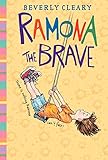Why Australia's New Five-Dollar Bill Is Newsworthy
Language
Reading Level
Listen to Article

When it comes to currency innovation, very few nations can outdo Australia. In 1988, it became the first country in the world to replace paper money with polymer banknotes. Now, the officials have done it again with a five-dollar bill that is not just cool to look at, but also so technologically advanced, that many experts are dubbing it the money of the future!

At first glance, the highly anticipated “fiver” that was rolled out on September 1, looks very similar to its predecessor. The note has the same signature pink color and image of Queen Elizabeth II on the front and the Parliament House at the back. But look closer, and you will notice a clear window running down the middle, surrounded by images of the yellow Prickly Moses, a type of Australian shrub.
Tilt the note a little and you will see the Eastern Spinebill, a species of birds endemic to south-eastern Australia, flapping its wings as if trying to fly away. Turn the bill from side to side, and you will notice the little Federal Pavilion at the bottom of the note come to life and spin, just as an overlapping image of “5” reverses positions. While these features are impressive and entertaining, that was not the reason Australian Reserve Bank officials spent ten years perfecting them. Their primary purpose was to make it impossible for counterfeiters to duplicate the bill.
As if the new security measures are not enough, the new $5 note also retains the anti-fraud measures of the old five-dollar bill. These include a type of raised printing called intaglio, which adds texture around the image of the number five and Queen Elizabeth II’s portrait, and a seven-pointed Federation Star (representing the country’s six states and combined territories) in varying light and dark colors.

Additionally, for the first in Australia’s history, the new bill also incorporates a tactile feature to help the country’s 360,000 visually impaired residents easily identify the denomination. The credit for convincing the Australian government to add this all-important feature goes to 15-year-old Connor McLeod. The Sydney teenager, who has been blind since birth due to a congenital disorder, came up with the idea in 2014 after being unable to tell how much money he had received for Christmas. The young boy says he was so embarrassed at not being able to differentiate between notes that he only carried coins to pay for food at the school cafeteria. But McLeod soon realized this was not a practical solution and decided to take action to make life easier for himself and other blind people.

To get the attention of the officials at the Reserve Bank, the young boy garnered public support through a petition on Change.org. While it took a few years, it was well worth the effort. The new $5 bills now have a raised bump alongside the two long edges, enabling the blind or those with limited vision, to quickly determine its value. Even more encouraging is that the government plans to add the tactile feature to the new $10 bill which will be released in about a year, as well as the updated $20, $50, and $100 bills that are still being designed. We, for one, cannot wait to see what new and exciting security elements each will incorporate.
Resources: cnet.com, digitaltrends.com,the guardian.com,cnet.com.au.
Cite Article
Learn Keywords in this Article
324 Comments
- tennisplayeralmost 3 yearsI love looking at bank notes from other countries
- basketballanimealmost 3 yearswow
- eezreealmost 4 yearswow. just wow.
- sky_dragonabout 4 yearsSo cool!
- wolfy_blueover 4 yearsits sooo priceless :D
- howlsover 4 yearsSo pretty!
- bscover 4 yearsThat's so cool!!!!!!!!!!!
- 29zabrahamover 4 yearsThat looks good I agree
- pianodog8over 4 yearsSuch a great idea!😃
- Wat daover 5 yearscool lol


